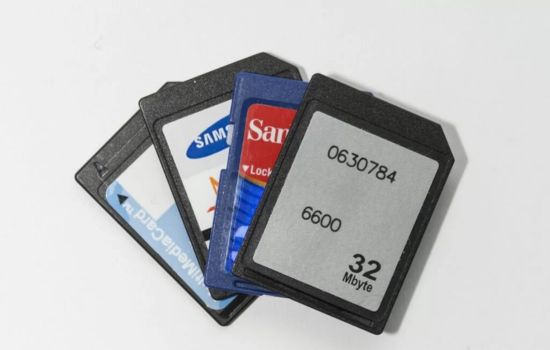Advertisements
Every day we use our phones for everything: working, talking, studying, recording, saving, and remembering. We've made them our inseparable companions.
But there comes a point when it starts to get overloaded. The camera stops working, apps freeze, and the "storage full" notification appears as a warning sign.
Then comes the inevitable question: what do I do with all this content? The answer isn't always to delete it. Sometimes, using the right tools is enough.
Today you will discover how three applications —Google Photos, Dropbox and Avast Cleanup— they can give your phone back the space and speed it deserves.
Advertisements
Dropbox: Secure Cloud Storage
★ 4.4Information on size, installation and warranty may vary as updates are made in official stores.
Advertisements
See also
- The Best Offline Music Platforms in 2025
- The secret to free movies: apps that let you watch movies
- Control Your Sleep from Your Mobile
- Improve your voice from home
- Amateur Radio Apps: Connect, Communicate, and Share
Excessive file size: a silent problem
Every image you capture, every video you record, every download you make leaves a trace. Little by little, the system accumulates hidden files you don't see. Caches, duplicates, temporary documents, and forgotten apps all get mixed up in one place. Without you noticing, the memory fills up and performance drops.
Many users believe they need to buy a new phone when the problem is simply one of organization. Space doesn't disappear; it's wasted. The key is learning how to manage it. The good news is that there are tools that automate this process safely.
Freeing up space doesn't mean losing your memories. It means reorganizing how you store them. With just a few simple steps, your device can regain speed and storage capacity.
1. Google Photos: infinite cloud storage
When it comes to preserving memories, Google Photos It's one of the most comprehensive solutions. Its main advantage lies in its automatic backup function. All your photos and videos can be stored in the cloud, freeing up physical space on your device.
The process is simple. Once your files are backed up, the app offers you the option “Free up space”. When you use it, it deletes local copies that are already safely stored online. In minutes, your phone's gallery is lighter without losing anything.
Another standout feature is its smart categorization. Google Photos organizes your images by people, places, or moments. Finding a specific memory becomes a matter of seconds. It also includes quick editing tools, eliminating the need to download other apps that would also take up space.
The free service offers a limited amount of storage. Once that limit is exceeded, you can opt for affordable paid plans. In any case, the peace of mind it provides is worth more than the cost.
Google Photos doesn't just free up storage space. It also transforms how you manage your memories. You no longer have to choose what to keep: everything is saved, organized, and available from any device.
2. Dropbox: the ally of digital organization
Dropbox It was one of the first platforms to understand that storage shouldn't depend solely on the device. Its proposition is simple: save your files in the cloud and access them whenever you need them, without taking up local space.
One of its most useful features is the "online only" file option. You can store documents, photos, or videos in the cloud without them taking up physical space on your phone. When you need them, they're temporarily downloaded. It's a smart way to keep essentials available without filling up your storage.
Dropbox also lets you share folders and links with others. It's ideal for teamwork or studies. Plus, it offers automatic backups and instant synchronization across devices. Everything updates effortlessly.
Its design is clean and easy to use. You don't need any technical knowledge to take advantage of it. Organizing folders, uploading documents, or reviewing old files takes seconds. It also includes recovery features, useful when you accidentally delete something.
The free plan has limited storage, but it's sufficient for those looking to free up space on their phone without any hassle. If you handle a lot of large files, the paid plans offer ample and secure storage.
Dropbox doesn't just expand storage. It changes your relationship with data. With it, space ceases to be an obstacle and becomes a flexible resource.
3. Avast Cleanup: Deep cleaning without risks
While Google Photos and Dropbox work with the cloud, Avast Cleanup It takes care of the phone's internal systems. Its purpose is to detect and remove unnecessary files that accumulate over time. It doesn't delete your personal data; it cleans up what's left over.
The app analyzes your system and shows you what's taking up space: temporary files, app caches, empty folders, duplicate images. With one tap, you can free up gigabytes of memory. It all happens safely and under control.
Another useful function is the hibernation mode. It stops apps running in the background that are draining battery or resources. This not only improves speed but also extends the device's lifespan.
Avast Cleanup offers detailed reports. You can see how much space you freed up and what was removed. It's transparent and easy to use. Some advanced features require the premium version, but the free version covers most everyday tasks.
You don't need any technical skills to take advantage of it. Just a few minutes a month is enough to keep your phone running smoothly. Instead of filling up the memory with digital junk, you're giving it back energy and stability.
Why keeping your phone clean matters more than you think
A full phone isn't just slower. It also wastes your time. You look for a photo and can't find it. You open an app and it takes forever to load. You save a video and get a memory error. This accumulation of frustrations creates stress.
Digital decluttering has an emotional effect. When your device is tidy, your mind is too. It's easier to concentrate, work, or enjoy moments without interruptions. Digital decluttering is, in a way, a form of well-being.
Furthermore, keeping your phone's storage space free extends its lifespan. The operating system can be updated without errors, apps run more smoothly, and the battery suffers less. It's not just about convenience; it's also an investment.
Small habits, big results
Using tools like Google Photos, Dropbox, and Avast Cleanup helps a lot, but daily habits also play a role. A few simple tips can prevent your storage from filling up again:
- Check your downloads. Delete temporary documents or files every week.
- Disable automatic downloads in messaging apps. This way you avoid accumulating unnecessary images.
- Update your apps. Newer versions usually optimize storage usage.
- Remove duplicates. Many repeated photos take up space for no reason.
- Clear the cache regularly. Avast Cleanup can automate this task.
These habits, along with the right apps, maintain digital balance.
The cloud as an extension of your phone
Previously, freeing up space meant deleting files. Today, thanks to the cloud, that's changed. Now you can keep everything without it taking up physical space. Google Photos and Dropbox are examples of this evolution.
The cloud doesn't just store your data, it also protects it. If you lose your phone, simply log in to recover everything. Plus, it lets you access your files from anywhere. It's freedom in its most practical form.
However, relying entirely on the cloud isn't always ideal. It requires a stable connection and can have storage limitations. That's why combining strategies is key: optimizing the device with Avast Cleanup and use the cloud with Google Photos and Dropbox. Together, these three tools balance the local and virtual spaces.
The new era of smart storage
Storage space management no longer depends on the user, but on technology. Modern operating systems learn your usage patterns and prioritize what's important. But we're still in a transitional phase. That's why cleaning and storage apps remain essential.
Google Photos represents emotional memories. Dropbox, functional organization. Avast Cleanup, internal maintenance. Each fulfills a different role, but they all share a purpose: to make your digital life lighter.
The future points to automated management, where the phone deletes temporary files and uploads what it deems necessary to the cloud. Until that happens, these tools are the best way to maintain control.

Conclusion
Freeing up space on your phone isn't just about storage. It's a way to regain control, clarity, and peace of mind.
These three apps form a perfect trio for any modern user. They allow you to get the most out of your device without sacrificing convenience. Keeping your phone organized means saving your time, energy, and data.
Because a phone with free space doesn't just work better. It also lets you live better.




